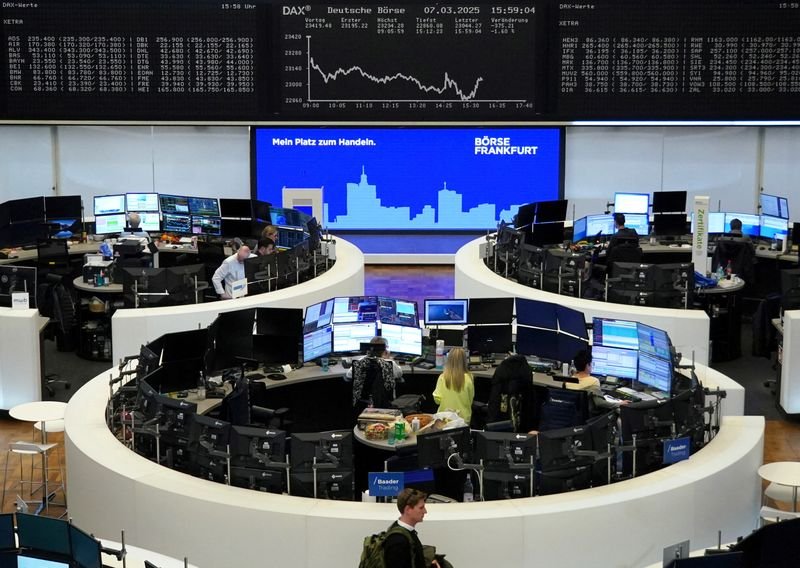Morning Bid
Asian stocks and European stock futures surged on Thursday as markets reacted to a brief period of relief following a 90-day suspension of most new U.S. tariffs. This reprieve, however, did not include China, where the escalating trade war continued to signal potential challenges for the markets. While investors showed optimism, the rally faced complications, and concerns about the sustainability of the relief rally began to surface.
The U.S. dollar struggled to maintain its gains from the previous day, especially against safe-haven currencies like the yen and Swiss franc.
Additionally, U.S. stock futures turned lower after a brief rally in the early hours, hinting at waning investor confidence in the U.S. economy. This shift in sentiment could be an early warning sign that the optimism surrounding the tariff truce might be short-lived.
Economists from J.P. Morgan were quick to caution that this moment of relief should be seen as “merely the end of the beginning.” The U.S.-China trade war, they warned, is far from over.
Despite the rally, Wall Street’s indexes posted their largest daily percentage gains in more than a decade, driven by the relief that President Donald Trump’s recent tariff reversal meant global trade wasn’t about to come to a complete halt.
However, the situation between the world’s two largest economies remains tense. Trump’s move to raise tariffs on Chinese imports to 125%, up from the previous 104%, has intensified the conflict.
Meanwhile, China retaliated by raising its own tariffs on American products to 84% and imposing restrictions on 18 U.S. companies. The continued escalation between the U.S. and China suggests that the trade war is unlikely to be resolved soon, keeping markets on edge.
In contrast, Vietnam has emerged as a potential winner in this global trade reshuffling. Benefiting from the “China plus one” strategy, which encourages global manufacturers to diversify their supply chains, Vietnam has agreed to initiate trade negotiations with the U.S., marking a positive step in its economic relations.
Chinese stocks initially saw a strong opening on Thursday, with Hong Kong’s Hang Seng Index surging 4%, despite the onshore yuan hitting its weakest point in over 17 years. Some analysts believe this rise was fueled by hopes of renewed dialogue between the U.S. and China, alongside expectations of support from Beijing for its domestic markets and economy.
Meanwhile, the global bond market, which had recently experienced a manic selloff, showed signs of stabilization. U.S. Treasury yields, which had surged in response to concerns about the economic impact of the trade war, retreated on Thursday, offering some relief to investors who had been worried about the fragility of the world’s largest bond market.
Later on Thursday, the March report on U.S. inflation was due, although its significance for markets was expected to be limited.
The data, which predated the latest round of tariffs imposed by Trump, might offer some insight into the state of the economy. However, any unexpected inflationary surprises could raise concerns, as they could be a precursor to sharper price increases once the tariffs are fully implemented, further complicating the economic outlook.










